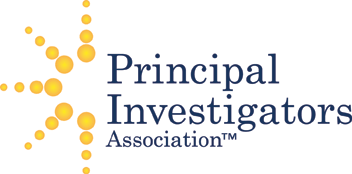|
Applying for, or renewing an NIH grant? Master the essential elements of your next NIH grant application With over 4 hours of detailed instruction, this Webinar library is filled with unwavering expert guidance for |
|
A research strategy is not just about experiments, but how you think about solving the problems raised. To successfully meet the requirements of the research strategy component of the NIH grant you must provide a clear picture of your research and its impact, how you will overcome challenges and what you hope to accomplish. Learn how by joining grant writing expert, Dr. Dorothy Lewis, during her Webinar “NIH Research Strategy: Actionable Next Steps to Develop a Winning Proposal.” You’ll walk away from this valuable Webinar with actionable next steps to help you tackle each component of the research strategy and develop a winning proposal. 5 Key Take-Aways:
90-Minute On-Demand Webinar. Available in CD, MP4 or PDF Transcript. |
 NIH Biosketch: Present Your Capabilities Effectively NIH Biosketch: Present Your Capabilities Effectively
Your grant application is — in many ways — a story. Each section must grab attention and build your case for funding, within page and character limits. So you must make the most of every word you write — including what you say about yourself in your Biosketch. This Webinar will reveal tricks of the trade and recommended tactics for effectively presenting your capabilities. For example, how to highlight what is most pertinent, the importance of uniformity across your team members’ biographies, and key words, phrases, publications and topics that will impress reviewers. 5 Key Take-Aways:
60-Minute On-Demand Webinar. Available in CD, MP4 or PDF Transcript.
|
|
|
You’ve spent weeks, perhaps months, completing your grant application, and you think it’s perfect. No misspellings or bad grammar. No math errors in the budget. But before you submit it, you need to give it a final look—like an airline pilot doing a flight check before takeoff. Why? You may have made a mistake you’re not even aware of. A 2010 NIH review of 45,000 applications identified the most common blunders and troublesome areas in its applications. This pragmatic Webinar will present strategies for breaking your final grant application review into four specific areas. These tactics will improve your chances of funding by submitting the best possible application, especially if you presented it a few days before the deadline. And although the focus will be on NIH, these approaches apply to other agencies’ applications as well. 5 Key Take-Aways:
60-Minute On-Demand Webinar. Available in CD, MP4 or PDF Transcript.
|
Maintaining funding throughout your career requires a solid strategy. As a PI, the last thing you need is to run out of money as you revise and resubmit your renewal. And even though renewals follow the same format and page limits as a new application, there are a few exceptions. For example, a progress report is required, but it is not clear where to place it or where the emphasis should be. Timing is key. To avoid a break in funding, you must stay ahead of the game. During this insightful webinar your expert presenter, Dr. Dorothy Lewis, will highlight the main points to consider before renewing, the best times for submitting your renewal, strategies for refocusing your efforts to come up with new ideas and directions, and the latest tactics to maximize your chances for success. 5 Key Take-Aways:
60-Minute On-Demand Webinar. Available in CD, MP4 or PDF Transcript. |
|
Bonus! Order today and receive a FREE 60-minute webinar entitled
|
|
|






